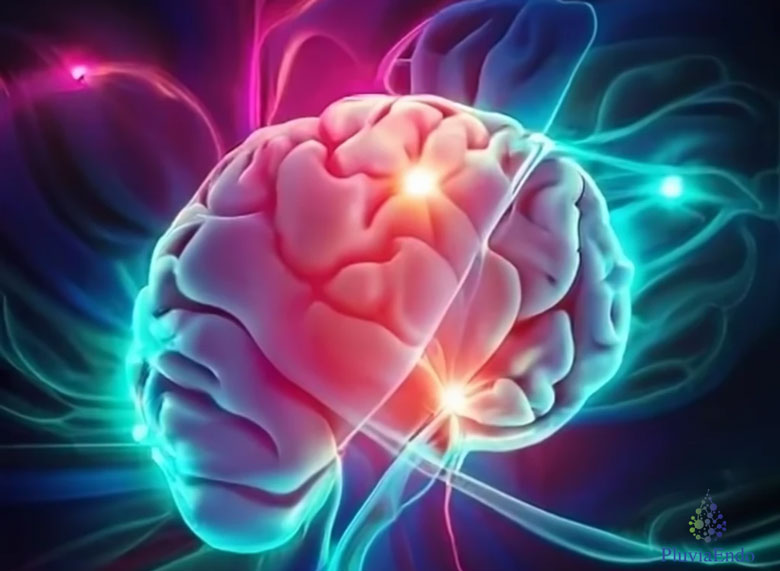Depression is a common mental health disorder that affects millions of people worldwide. Many individuals struggle to find an effective treatment that works for them. However, research has shown that Naltrexone and depression are related. It is a medication primarily used to treat alcohol and drug addiction and may also be effective in treating depression.
Naltrexone and Depression Treatment
Naltrexone is a medication that is commonly associated with treating addiction by blocking the effects of opioids in the brain. However, in recent years, its role in treating depression has gained attention and significance. Understanding how naltrexone works in the context of depression treatment is crucial for both healthcare providers and patients.
In depression treatment, naltrexone is believed to work by modulating the brain’s neurotransmitter systems, particularly by targeting the endorphin system. Endorphins are natural chemicals in the brain that help regulate mood, emotions, and pain perception. By blocking certain receptors and influencing the release of endorphins, naltrexone may help regulate mood and alleviate symptoms of depression.
What Research Says?
Research on naltrexone for depression continues. The exact antidepressant mechanisms are being elucidated. Numerous studies show promising results. Patients unresponsive to traditional medications may benefit from naltrexone. It serves as an alternative or adjunctive treatment.
Individuals considering naltrexone for depression should consult a qualified healthcare provider. Discuss potential benefits, risks, and side effects. Understanding naltrexone’s role in depression treatment can inform personalized plans, offering hope for those struggling with depressive symptoms.
How does Naltrexone work in the brain?
Naltrexone is a medication that has shown promising results in the treatment of depression, offering a new path for those struggling with this mental health condition. Understanding how Naltrexone works in the brain is crucial to comprehending its effectiveness as a treatment option.
Naltrexone blocks brain receptors linked to endorphins, mood-regulating neurotransmitters. Blocking these receptors helps regulate endorphin release, improving mood and reducing depressive symptoms overall.
Moreover, Naltrexone has been found to have neuroprotective properties, which can help in preserving brain function and preventing further damage associated with depression. This mechanism of action makes Naltrexone a unique and valuable treatment option for individuals seeking relief from depression.
By delving into the intricate workings of Naltrexone in the brain, individuals can gain a deeper insight into how this medication can positively impact their mental health and well-being.
Benefits of using Naltrexone for depression
Naltrexone, primarily known for its use in treating addiction, has recently gained attention for its potential benefits in treating depression. Research has shown that Naltrexone, when used off-label for depression, can offer several advantages to individuals struggling with this mental health condition.
One of the key benefits of using Naltrexone for depression is its ability to modulate the brain’s neurotransmitter systems. By blocking certain opioid receptors, Naltrexone can help regulate the release of neurotransmitters such as dopamine and serotonin, which play crucial roles in mood regulation.
Additionally, Naltrexone has shown promise in reducing inflammation in the brain, which is believed to be a contributing factor to depression. By targeting neuroinflammation, Naltrexone may help alleviate depressive symptoms and improve overall mental well-being.
Furthermore, Naltrexone is known for its low side effect profile compared to many traditional antidepressant medications. This can be particularly beneficial for individuals who may have experienced intolerable side effects with other treatments or are seeking alternative options for managing their depression.
Overall, the benefits of using Naltrexone for depression highlight its potential as a novel and promising approach to treating this complex mental health condition. However, it is essential to consult with a healthcare provider or mental health professional before considering Naltrexone as a treatment option to ensure its suitability and safety for individual needs.
Potential side effects of Naltrexone
When considering Naltrexone as a treatment option for depression, it’s crucial to be aware of the potential side effects and risks associated with this medication. Like any pharmaceutical drug, Naltrexone comes with a list of possible adverse effects that should be carefully considered before starting treatment.
Common side effects of Naltrexone may include nausea, headache, dizziness, fatigue, and insomnia. These symptoms are usually mild and tend to improve over time as the body adjusts to the medication. However, it’s essential to monitor these side effects and consult with a healthcare provider if they persist or worsen.
In rare cases, more serious side effects such as liver damage, allergic reactions, or mood changes may occur. It’s crucial to seek immediate medical attention if you experience any severe symptoms while taking Naltrexone.
Before starting Naltrexone treatment, it’s essential to discuss your medical history, current medications, and any concerns with your healthcare provider to determine if Naltrexone is the right choice for you. Always follow your doctor’s recommendations and guidance to minimize the risks associated with this medication and ensure safe and effective treatment for depression.
Who is a good candidate for Naltrexone treatment?
Naltrexone is a medication that has shown promise in treating depression, particularly in individuals who have not responded well to traditional antidepressants or therapy. While it is not a first-line treatment for depression, there are specific characteristics that can make someone a good candidate for Naltrexone therapy.
Individuals who may be good candidates for Naltrexone treatment include those with treatment-resistant depression, meaning they have not experienced significant improvement with other antidepressant medications. Additionally, individuals who struggle with substance abuse or addiction may benefit from Naltrexone, as it can help reduce cravings and prevent relapse.
Moreover, individuals who experience symptoms of anhedonia, such as a lack of interest or pleasure in activities they once enjoyed, may also benefit from Naltrexone treatment. This medication has been shown to help restore the brain’s reward system, leading to an increase in motivation and enjoyment.
Individuals considering Naltrexone treatment must consult a healthcare provider to determine its appropriateness for their specific needs. Only a qualified professional can assess whether Naltrexone is suitable and create a personalized treatment plan for optimal results.
Combining Naltrexone with other treatments for depression
Treating depression comprehensively involves combining Naltrexone with other options for symptom management and overall mental health improvement. While known for substance abuse disorders, Naltrexone has shown promising results in alleviating depression symptoms when used alongside other therapies.
One common approach is to combine Naltrexone with psychotherapy, such as cognitive-behavioral therapy (CBT) or interpersonal therapy. These therapeutic interventions can help individuals address underlying emotional issues, develop coping strategies, and improve their overall mental well-being. By combining medication with therapy, patients may experience enhanced benefits and a more holistic treatment approach.
Alongside psychotherapy, lifestyle changes like regular exercise, a healthy diet, and sufficient sleep can enhance Naltrexone’s effects in managing depression. Physical activity, especially, releases endorphins, positively impacting mood and overall mental health.
Consulting a healthcare provider before combining Naltrexone with other depression treatments is crucial. A personalized treatment plan, tailored to individual needs, optimizes the combined approach’s effectiveness and supports the journey toward improved mental well-being.
What to expect during Naltrexone treatment
Understanding what to expect during Naltrexone treatment is crucial for a smooth and effective journey in managing depression. While primarily used for alcohol and opioid dependence, recent studies suggest its potential in treating depression by modulating the brain’s neurotransmitter systems.
When starting Naltrexone treatment for depression, patients may experience some initial side effects such as nausea, headache, or fatigue. These side effects are usually mild and tend to subside as the body adjusts to the medication. It is important to communicate any discomfort or concerns with your healthcare provider to address them promptly.
As the treatment progresses, patients may begin to notice improvements in their mood, energy levels, and overall well-being. Naltrexone works by targeting the brain’s reward system and helping regulate neurotransmitters like dopamine and serotonin, which play a crucial role in mood regulation.
It is essential to adhere to the prescribed dosage and follow-up appointments with your healthcare provider to monitor your progress and make any necessary adjustments to the treatment plan. Additionally, incorporating therapy or counseling alongside Naltrexone treatment can enhance the overall effectiveness of managing depression.
By knowing what to expect during Naltrexone treatment, patients can approach their journey toward managing depression with confidence and optimism, ultimately paving the way for a brighter and healthier future.
Tips for managing side effects and maximizing effectiveness
Managing side effects and maximizing the effectiveness of naltrexone treatment are crucial aspects of ensuring a successful depression treatment journey. Here are some tips to help you navigate this process:
1. Consult Your Healthcare Provider: Always consult with your healthcare provider before starting or making any changes to your naltrexone treatment. They can guide managing side effects and optimizing the effectiveness of the medication.
2. Stay Hydrated: Drinking plenty of water can help alleviate common side effects such as dry mouth or constipation. Staying hydrated is important for overall health and can support the effectiveness of the medication.
3. Monitor Your Symptoms: Keep track of any side effects or changes in your symptoms while on naltrexone. This information can be valuable for your healthcare provider in adjusting your treatment plan if needed.
4. Follow a Healthy Lifestyle: Incorporating regular exercise, a balanced diet, and sufficient sleep into your routine can complement the effects of naltrexone in managing depression symptoms. A healthy lifestyle can also help reduce potential side effects.
5. Take Medication as Prescribed: It is essential to take naltrexone as prescribed by your healthcare provider. Missing doses or altering the dosage without medical advice can impact the effectiveness of the treatment.
6. Communicate Openly: Be open and honest with your healthcare provider about how you are feeling, any side effects you may be experiencing, and any concerns you have about your treatment. Effective communication is key to optimizing your naltrexone therapy.
By following these tips and working closely with your healthcare provider, you can effectively manage side effects and maximize the effectiveness of naltrexone in treating depression. Remember that personalized care and attention are essential in achieving positive outcomes in your treatment journey.
Success stories and testimonials from Naltrexone users
Sharing success stories and testimonials from Naltrexone users offers insights and inspiration for those considering this depression treatment. Hearing firsthand accounts of positive impacts can provide hope and encouragement to hesitant individuals, fostering confidence in their decisions.
Stories can spotlight diverse experiences with Naltrexone, revealing its varied benefits. From increased motivation and reduced depression symptoms to enhanced well-being, testimonials vividly illustrate Naltrexone’s transformative effects on mental health journeys.
Real user accounts connect readers personally, offering insights into the potential benefits and outcomes of Naltrexone treatment. Success stories motivate, reassure, and empower those seeking effective solutions for managing depression, providing hope in their recovery journey.
Consultation and considerations before starting Naltrexone treatment
Before embarking on Naltrexone treatment for depression, it is crucial to prioritize thorough consultation and considerations. This step is essential to ensure that the treatment plan is tailored to your specific needs and circumstances.
Consultation with a healthcare provider, such as a psychiatrist or a medical doctor specializing in mental health, is paramount. Healthcare professionals will assess your medical history, current medications, and overall health to determine if Naltrexone is suitable for you. Discussing past medication experiences, potential side effects, and expected outcomes is crucial for setting realistic treatment expectations.
Considerations before starting Naltrexone treatment should also include a discussion on lifestyle factors that may impact the treatment’s effectiveness. Factors such as alcohol consumption, dietary habits, exercise routine, and sleep patterns can all play a significant role in how well Naltrexone works for you.
Furthermore, understanding the potential risks and benefits of Naltrexone treatment is essential. Being informed about the medication, its mechanism of action, possible side effects, and interactions with other substances will empower you to make well-informed decisions about your mental health journey.
Conclusion
In conclusion, consulting and thorough consideration before starting Naltrexone treatment are vital for a safe and effective experience. Working closely with healthcare professionals and staying well-informed about the treatment process allows you to navigate Naltrexone treatment confidently and optimize your path to mental wellness.
We hope this comprehensive guide to using Naltrexone for depression treatment has been informative and helpful. Navigating mental health issues can be challenging, but with the right information and support, it is possible to find effective treatment options. Remember, seeking professional guidance and discussing treatment plans with your healthcare provider is essential. We wish you all the best on your journey towards better mental health and well-being. Stay strong, stay hopeful, and never hesitate to reach out for help when you need it.






